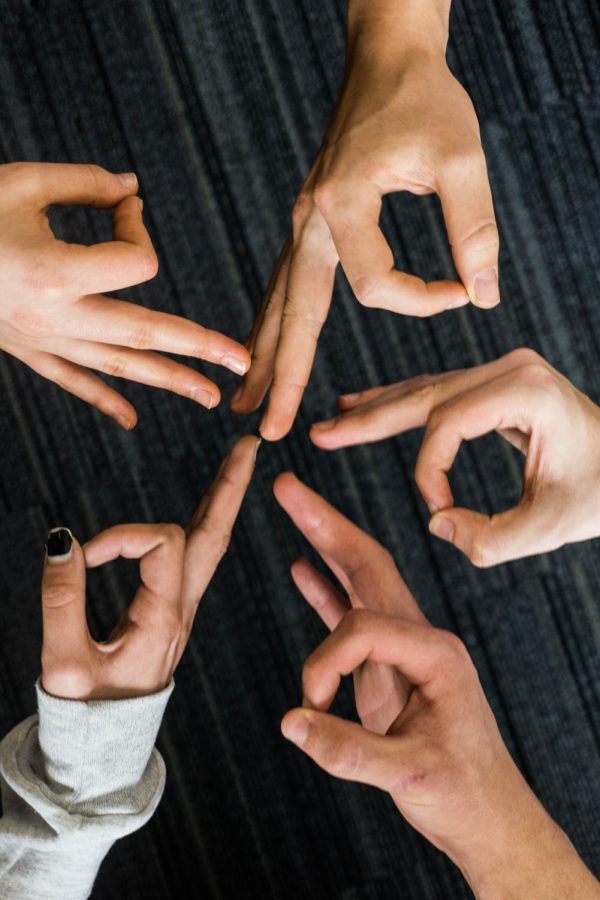Understanding the circle game and what it means for America
BSM senior and youth culture participator, Max Byzewski, delves into the world of modern classroom games.
Students band together to form a ruthless circle game attack (that’s ten folks).
February 15, 2018
The circle game has been a prominent facet in the youth of America for many years. Walking through the corridors of BSM, many students can be seen falling victim to this recreation. The main goal of the game is to get a fellow compatriot to look at a hand above or below the waist whilst it is making a  sign.
sign.
The game, while childish in nature, has augmented from a middle school staple to being a played by many in high school. It’s interesting to see it grow from an adolescent activity to now being played by seniors on a regular basis. “It’s kind of a fun thing to joke around with your friends about, no one really takes the game super seriously,” BSM senior and avid circle game partaker, Michael Pupel said.
While the origin of this game is unknown, the first time the game showed up on mainstream media was in the 1990s, on an episode of “Malcolm in the Middle”. Many students across the globe began to emulate this activity and the game grew more and more popular.
It’s amazing how the game has outlived its playground kin members such as the paper fortune teller, zap, four square, tetherball, lava tag, ghosts in the graveyard, and assassins. The circle game has endured and remained throughout the years, and proves its superiority and separation from virtually every other game played by youth.
What truly makes this easygoing game a timeless classic, and a game that can be played by everyone, is the unmatched simplicity it brings. There are no hard rules and it is a fun, easy way to interact with peers. While we don’t know who really invented this game, the creator can take solace in knowing that they commenced a movement amongst the youth of America that has stood the test of time.






































![Teacher Lore: Mr. Hillman [Podcast]](https://bsmknighterrant.org/wp-content/uploads/2025/03/teacherlorelogo-1200x685.png)













Lisa Womac • Apr 27, 2024 at 9:06 am
Actually the circle game has been around since the ’80s. I remember a yeah I know started playing the circle game back in 1983. I think it’s hilarious that it’s still going ?????? my friend’s husband and kids are always getting me LOL.